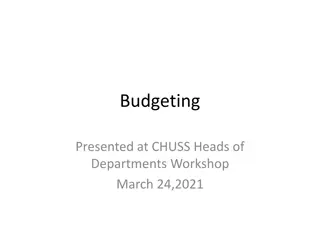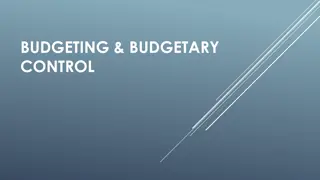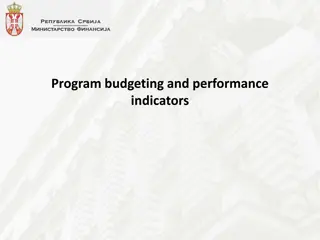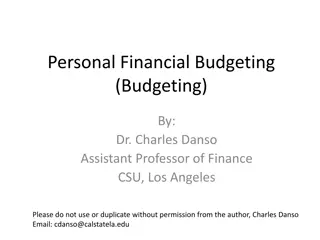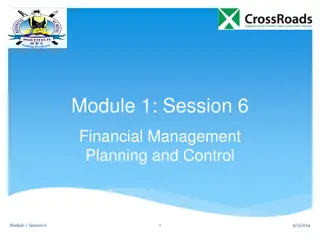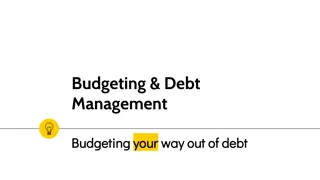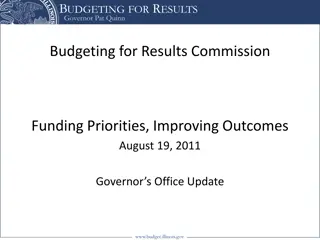Budgeting for Financial Goals
A budget is a comprehensive financial plan essential to achieve an organization's financial goals. By establishing budgeting amounts through various methods, such as the behavioral approach and total quality management approach, organizations can enhance management responsibility, assign decision-making roles, coordinate activities, and evaluate performance. It is crucial to maintain a reasonable and achievable budget level, eliminating inefficiencies and non-value-added activities for optimum efficiency. Budget periods vary based on management policies, with different types of budgets like operational, capital expenditure, and budgeted financial statements serving specific purposes in financial planning.
Uploaded on Mar 15, 2025 | 0 Views
Download Presentation

Please find below an Image/Link to download the presentation.
The content on the website is provided AS IS for your information and personal use only. It may not be sold, licensed, or shared on other websites without obtaining consent from the author.If you encounter any issues during the download, it is possible that the publisher has removed the file from their server.
You are allowed to download the files provided on this website for personal or commercial use, subject to the condition that they are used lawfully. All files are the property of their respective owners.
The content on the website is provided AS IS for your information and personal use only. It may not be sold, licensed, or shared on other websites without obtaining consent from the author.
E N D
Presentation Transcript
Budget This is a comprehension financial plan to achieve the financial goals, setting forth the expected route for achieving the financial operational goals of an organization. Benefits of Budget Enhance management responsibility Assigning of decision making responsibility Coordination of activities Performance evaluation Budget: : Benefits of Budget
Establishing budgeting amount: There are two methods Behavioral approach Total quality management approach
You must keep the budgeted level that is reasonable and achievable. Don t determine keep heavy budget. Such level of budget which is achievable and reasonable. When you make budget financial budget). In it eliminate the non-value added activities.
Eliminate inefficiency and non-value added act continues improvement is TQM. Budget level represent the absolute efficiency such budget is set which represent the absolute efficiency and eliminate the non- value added activities. To achieve this, a level of complete efficiency must make by eliminating non value by using sales manager pay, tax etc.
For how long budget is being made policy duration of the management called budget period. Long policy has long term budget while short policy has short term budget. Period should be according to the management policy. Different types of budget has different period of times. E.g. capital expenditure budget is a long term budget having time period 5-10 years known as long term budget. Operation financial budget is for one year. And continues budget is months to moths budget.
Sum of all small budgets types of master budget are following: Operational budget (short term budget) Sales present Production schedule Manufacturing cost budget Cost of goods sold budget An ending inventory budget Operating expense budget
2. Capital expenditure budget (long term budget) from 10 years. Budget made for fixed assets having period. E.g. building new factory, Building oil refinery etc. 3. Budgeted financial statement (short term) 1. Budgeted income statement 2. Cash budgeted 3. Budgeted balance sheet. Budgeted financial statement (short term)



